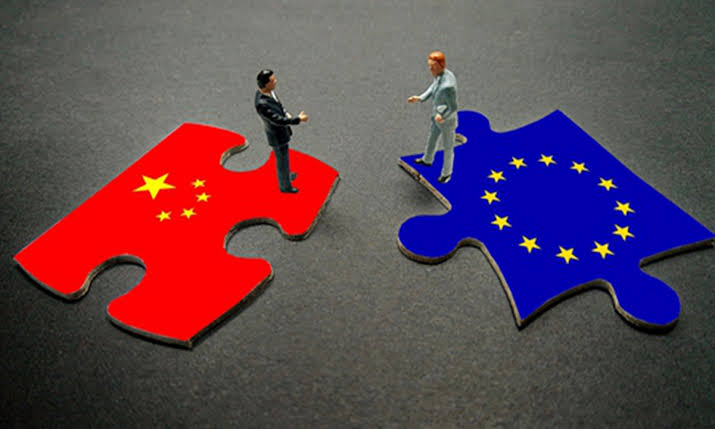A trade war with China is the last thing Europe should consider

Is a trade war likely to break out between China and Europe? This is a dangerous topic that the public opinion in Europe, including Germany, has been hyping up. China and Europe in recent years have been the major trading partner of each other, and weathered many storms together.
With a highly complementary industrial chain and great economic interdependence, it stands to reason that the trade war should not have become a serious topic in Europe’s China policy discussion. However, some media have portrayed an “upside-down world” for Europeans: High economic dependence between China and Europe is not a dividend but “risk” for the continent, while others say Europe must prepare for a conflict with China.
It must be pointed out that for Europe, the damage these public opinion counter currents would bring cannot be ignored. At present, the European economy is facing multiple challenges including the Russia-Ukraine conflict, energy crisis, high inflation, repeated COVID-19 outbreaks, and lasting periods of high temperatures and droughts.
At a time Europe should cherish peace, an external environment favorable to development and mutually beneficial partners, some people in the continent intend to artificially create conflicts with China. Is it just simply because China has become increasingly important for European interests, the continent therefore must decouple from, guard against and repulse China? It’s impossible for a normal person not to eat because he is afraid of being chocked. It’s even less likely that he will smash the rice bowl.
In sum, the European opinion now mainly focuses on two issues. First is whether to voluntarily reduce economic and trade dependence on the Chinese market, or decouple from China in other words, to avoid being into a passive position in the future. Second, if Europe doesn’t accept some of China’s policies and decisions, should it resort to trade sanctions? Obviously, many Europeans have been obsessed with these two problems, but it’s fair to say there is indeed a problem with raising the two issues.
Regarding the first issue, the close economic and trade relations between China and Europe should not be interpreted as a one-way dependence of one party on the other, but rather as a normal “interdependence.” The European economy, especially the German economy, is highly externally oriented, which is determined by the general trend of economic globalization that Europe has grasped and thus fully gained the benefits.
According to a report issued by the IFO Institute, a trade war and a decoupling of the EU and Germany from China would cost Germany almost six times as much as Brexit. The former US president Donald Trump wielded the stick of tariffs on many countries during his tenure, which was firmly opposed by Europe, especially France and Germany. As the harm caused by the trade war at that time is still lingering in the European continent today, the word “trade war” should not appear in the European public opinion in particular.
The second issue mirrors the arrogance and prejudice deep in some people’s minds in Europe toward China. They are used to judging others, including China with a sense of superiority. In their view, economic and trade sanctions can be used as a political suppression bargaining chip. In fact, Europe is in no position nor has the power to do so. To a large extent, the first issue is measuring others according to Europe’s own standard and such mindset.
The two issues are two sides of the same coin, reinforcing each other. Those who urge to suppress China are anxious and fearful about China’s rising importance. We would also like to remind that some people in Europe should not think about creating conditions for challenging China’s core interests by reducing their economic and trade dependence on China, which is putting the cart before the horse.
There are indeed many things that are troubling Europe and have provided a breeding ground for various extremist views. China, which is far away from Europe, has become a target for some people to vent their dissatisfaction. But none of the abovementioned problems are caused by China. And it’s the wrong way to ease the anxiety by poisoning China-Europe mutual trust foundation and undermining China-Europe economic cooperation.
In recent years, the US has exerted a strong traction on Europe over major geopolitical issues. The result is the US benefited, while Europe fell. Now, Europe needs to sort out domestic affairs and figure out how much of its anxiety around China really comes from China, and how much comes from surrendering strategic autonomy to the US.
Former German chancellor Helmut Schmidt reportedly said Germany should be careful not to be the moral apostle of the world. This sentence also applies to the entire Europe today. A number of European economists recently told media that people need to separate political differences from normal trade and China deserves due respect, warning Europe against short-sighted actions.
Their reminder is targeted as public opinion in Europe is showing worrying tendency. Some of the content seem to be copied from the US. But Europe is not a state of the US. This important fact cannot be ignored by the Europeans, otherwise, it’s easy to fall into a big hole specifically dug for Europe.



